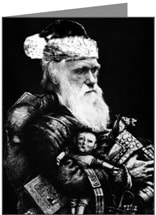Iowa Citizens for Science Stealthily Promotes Misinformation about Guillermo Gonzalez and Discovery Institute
On December 3, Discovery Institute helped organize a press conference at the Iowa State Capitol where we released evidence that Guillermo Gonzalez faced discrimination at ISU because he supports intelligent design as a science. Someone from the pro-Darwin activist group, Iowa Citizens for Science, attended that press conference and passed out a press release. Citizens were welcome to attend the press conference and we made no objections to this person attending and distributing his press release. Within a couple days, a press release appeared on the Iowa Citizens for Science (ICFS) website, asserting that “[Guillermo] Gonzalez and the DI have announced plans to sue Iowa State University.” But that statement was both untrue and impossible: Discovery Institute is not Dr. Read More ›






































